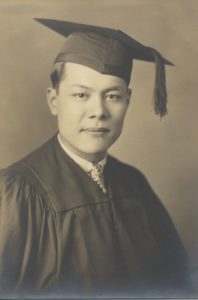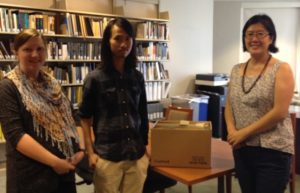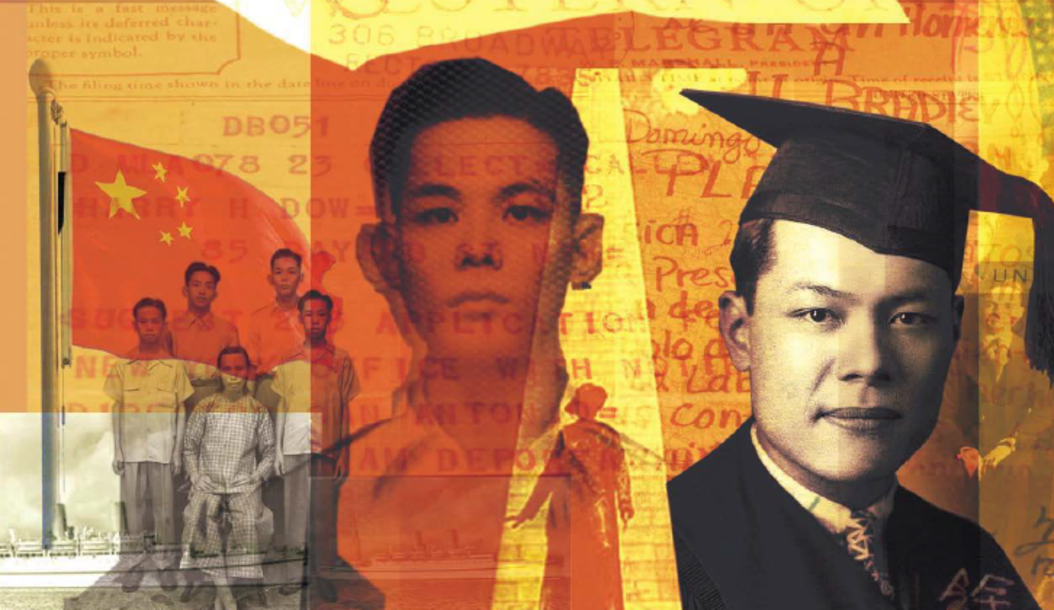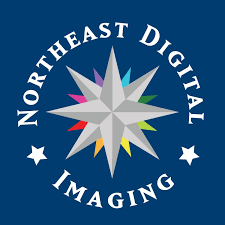
Harry Dow Archive and Digital Exhibit

Harry Hom Dow graduates from Suffolk Law School, 1929, Moakley Archive & Institute
CHSNE partnered with the Moakley Archive and Mass Humanities to create a summary document, inventory, and translation of the archive of Harry Hom Dow.
Harry Hom Dow served many Chinese American clients in his Boston and New York legal offices during the 1950s. Dow’s collection, which was donated to Suffolk University, includes 400-plus client files that document the complex and (intentionally) difficult process for Chinese immigrants to enter the U.S. Although the collection is currently closed to research, a partnership between CHSNE and Suffolk University’s Moakley Archive has been established to explore ways to make the files more accessible.
Providing access to the client files has been challenging for Suffolk’s archivists—attorney-client privilege, privacy protections, and Chinese language materials place restrictions on the use of the collection. The client files, which include sworn affidavits, federal court documents, medical records, correspondence, family photographs, and immigration interrogation study sheets, are an invaluable research resource for scholars and the general public.
CHSNE’s partnership with the Moakley Archive

Members of the Dow Project Team, 2015. From left: Jessica Sedgwick, Zi Jing Teoh, and Susan Chinsen
A Mass Humanities Research Inventory Grant provided funding for Zi Jing Teoh, a Brandeis University student, to spend the summer of 2015 delving into Dow’s legal files. CHSNE connected with Zi Jing Teoh during his research into US Canadian border crossings by Chinese during the Chinese Exclusion Act period. Teoh’s understanding of the impact of Exclusion laws on Chinese in the Northeast paired with his native Chinese language skills made him an ideal candidate to undertake a closer look at the Dow legal case files.
Teoh produced a summary document that offers an overview of the collection, enhancements to the collection’s inventory, and several translated documents including a coaching book and correspondence. These documents have been redacted to allow for public access. Suffolk used these new documents and information to create a digital exhibition that presents Dow’s story and a selection of documents from his archival collection to tell the story of Chinese immigration to the U.S. in the 1950s.

This program is funded in part by Mass Humanities, which receives support from the Massachusetts Cultural Council and is an affiliate of the National Endowment for the Humanities.







About the author